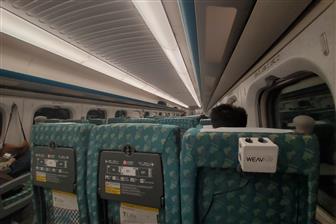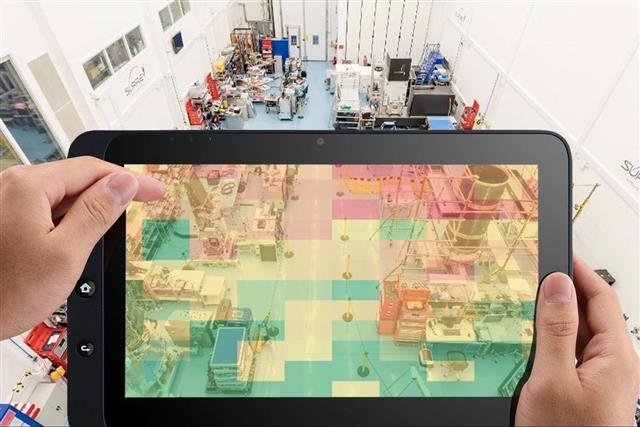Aware of the air quality and the impact of exhaust emissions since her days studying Ph.D., Natalia Mykhaylova and her team at WeavAir created an analytics tool to help clients in hospitality, retail, transportation, commercial, logistics, and industrial to monitor the changes in the air condition and contamination on-site, space maintenance needs, and energy efficiency in a continuous and adaptive way.
Especially during the pandemic times, WeavAir CEO Mykhaylova said, "It is difficult to know in large spaces when it has last been cleaned or disinfected." So WeavAir added a lot of new features since COVID started, helping clients detect and curb the spread of bacteria and viruses in the airflow. Construction sites, manufacturing plants, large office buildings, hotels, supermarkets, and transportation systems have more complex environments than our homes. The WeavAir solution helps operators of these sites to optimize their working environments and to prevent downtime.
Mykhaylova has more than 10 years of experience in analyzing data and algorithms, managing air quality and energy efficiency, and predicting the maintenance of electrical and mechanical systems. She founded WeavAir in 2017 and had previously founded other ventures in air purification, data science, and sustainability.
Use Case
The software detects the abnormalities in the airflow, reports crowded places in the buildings and helps clients maintain their air-conditioning systems at the highest efficiency which reduces energy consumption. Ventilation systems in the buildings are usually not in their best conditions or simply lack regular maintenance; WeavAir, therefore, provides such a solution to help operators detect decreases in the energy efficiency of the air-con systems and to help meet maintenance needs in a predictive way by combining multiple sensor inputs. WeavAir software also generates analytical data useful for ESG (Environmental, Social, and Corporate governance) and sustainability reporting, which many investors currently require from corporations.
The Toronto-based startup has expanded operations with subsidiaries in South Korea, Singapore, Hong Kong, and Europe. It has been working with governments and large hotel operators, transportation operators, construction companies, retail operators, and manufacturers in Singapore, the Philippines, Spain, and South Korea. WeavAir has also been working with the insurance industry to manage risks.
Monitoring the airflow and particles in the air is vital for hotels and construction sites because indoor air quality has the most direct impact on customers' and workers' health and wellbeing. It is important for hotels to provide air analysis showing transparency and ensuring residents' health and safety in the hotel. Low quality of airflow could also lay an impact on business and lead to violation of site regulations. WeavAir helps companies document and report the progress of lowering carbon emissions to the government as required, against the backdrop of governments calling for actions to reach carbon neutral.
More recently, WeavAir has created a solution for insurance companies and their customers to save time and reduce costs and risks in managing assets and preventing losses by implementing early warning systems and data-driven loss prevention protocols. The solution is end-to-end, including data collection, risk rating, and risk prevention.
Train system
Another use case it wants to leverage is the transportation system in big cities as governments and operators seek to improve the air quality people breathe in during their daily commute. WeavAir's solution not only collects data but also provides analysis for operators to respond to changes and better maintain the environment.
The adaptable air analysis is based on the changes in the environment such as temperature, the number of passengers in the car, the conditions of the car's ventilation system, and many other factors.
According to Mykhaylova, each car might need 1-2 devices to conduct data collecting and air analysis, dependent on the size of the car.

WeavAir solution demo; Credit: WeavAir
Supply chain challenges
WeavAir developed its own detection and sensory technologies and adopts highly specialized sensory semiconductors in its product. Mykhaylova said the semiconductor shortage has been really challenging for small companies like WeavAir, and she looks forward to enhancing partnerships with suppliers from Taiwan.
"Even after we have placed orders, supply is still restrained, and that's not something we can control," said Mykhaylova. With their clients increasing and products enlarging, WeavAir is looking for more suppliers of semiconductors as well as IoT sensor devices to meet the growing demand for specialized sensors.
The Canadian startup now has several advisors from Taiwan-based ICT suppliers. During her month-long visit to Taiwan, she and her team are attending the InnoVEX Expo in May and are interested in meeting insurance companies, data aggregation companies as well as environmental, security, and safety sensor manufacturers.
As of May 2022, the company is at the final stage of building its supply chain in Taiwan. With sources of sensors secured, WeavAir is poised to manufacture a few thousand units of its hardware in Taiwan and might have small-scale assembly operations in Canada or Singapore.
WeavAir is currently in its second round of fundraising with a goal of US$3 million.

WeavAir solution demo; Credit: WeavAir




